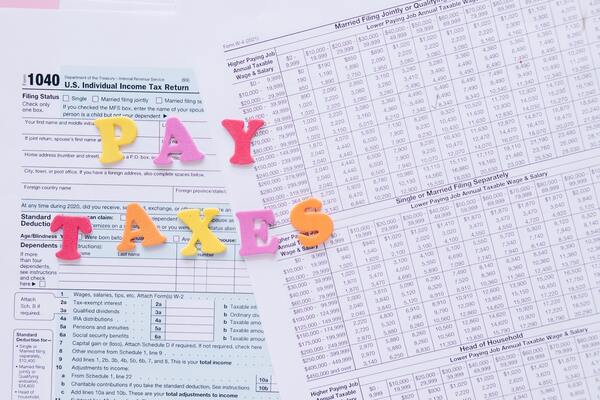Updates of payroll records on behalf of each employee is the responsibility of every business owner.
This contains information that explains how salaries are earned.
Is this what makes it so important to hold onto them?
The main purpose of keeping payroll records is that they are required by federal state and law to maintain payroll record compliance with regulatory agencies like the Bureau of Internal Revenue (BIR) and the Department of Labor and Employment (DOLE).
Other than compliance, maintaining a detailed payroll record for several years can also benefit your business directly such as using them as reference in giving salary increase, defending your company from accusations of unfair and inaccurate payment and more.
The list of payroll records guide below will help you find quick answers to your questions in keeping your business safe.
What are payroll records?
All paperwork related to paying employees, including employment papers, direct deposit authorization forms and paystubs is referred to as payroll records.
This includes anything that provides proof of total hours worked, pay rate, tax deductions, employee benefits etc.
Employers must maintain most payroll information for at least 10 years no matter an employee’s employment status in compliance with the Bureau of Internal Revenue (BIR).
Why do you need to keep payroll records?
In the first place, keeping payroll records is required by law.
You must maintain payroll files for every employee in order to stay in compliance with the requirements established by the Department of Labor and Employment (DOLE), and Bureau of Internal Revenue (BIR).
Keeping payroll records is essential for commercial reasons, they are helpful for tracking purchases, providing evidence to backup payroll calculations and preserving employee information as a guide for planning raises, hence payroll files are an important aspect in employee records.
In addition to employee related matters, keeping your payroll records is advantageous for tax purposes. You should have payroll records available in case the BIR conducts an audit, you will be able to support any claims you make on your income taxes.
1. Federal Laws and recordkeeping requirements
There are a number of important pieces of the federal laws that you need to be aware of.
This covers the BIR Revenue Regulations 17-2013. According to the BIR, if a taxpayer is being investigated for any dishonesty or inaccuracies, their records are required even beyond the three-year statute of limitations on assessments.
2. State laws and record keeping requirements
It is important to keep in mind that state regulations may vary, so you should research any legislation that could apply to your specific company.
Given that many regions require you to preserve payroll records for a longer period of time, this is crucial to keeping your company in compliance with governing authorities.
What should be included in payroll records?
While there are no rules about the organization or the storage of your payroll data, some information must be included when creating your employee payroll records and these are:
- Employee’s full name
- Social Security number
- Start date
- Address
- Birth date
- Occupation
- Total hours worked
- Pay rate
- Daily or weekly straight-time earnings
- Total overtime earnings
- Start day of the workweek
- Payroll deductions from employee’s wages for stock purchase plans, garnishments, etc.
- Date of payment
- Pay period covered by the payment
- Exempt or non-exempt status
- Hourly or salaried pay status
To make sure each payroll file contains the necessary information, use this checklist when building your template for payroll records.
This will also assist you in ensuring that each employee payrolls are uniform.
How long do you need to keep payroll records?
The law requires your company to maintain payroll records for a specific period of time.
The regulations governing that kind of paperwork will determine how long you must keep records.
According to Revenue Regulations (RR) No. 17 2013 by the Bureau of Internal Revenue (BIR), taxpayers must keep their books of accounts, including subsidiary books and other accounting documents for 10 years.
1. Retention requirements of the different types of payroll document
- Last 5 years may be stored in electronic format
- Electronic storage system
- Ensure an accurate and complete transfer of images of the hard copy of accounts, including subsidiary books and other accounting records to an electronic storage media.
- Index, store, preserve, retrieve, and reproduce the electronically stored images of the hardcopy of the books of accounts, subsidiary books, and other accounting records.
2. What should be done with the payroll records after the retention time frame passes?
Payroll records should be disposed of once the necessary retention period has passed.
However, that does not suggest that you should discard them.
Payroll files contain extremely sensitive information, thus it’s crucial to properly get rid of them.
If payroll records are paper documents, they should be fully destroyed in a safe area, just like all other human resources data.
Delete digital files from your system forever.
Where should you store payroll records?
Businesses are currently evolving their payroll papers online, when before they were usually kept in filing cabinets.
Use a secure method for keeping payroll records online to avoid this sensitive information getting into the wrong hands.
Payroll record storage involves a lot of responsibility and requires caution.
Here are some suggestions for keeping payroll files in order and keeping this data safe:
- Use a standardized template for all payroll records
- Keep all of your payroll files in the same place
- Use a cloud-based storage solution as opposed to documents or spreadsheets stored on your computer
- Invest in payroll software with HR services for your small business to help with accuracy and organization
- Ensure that payroll files are up-to-date for every employee and immediately input this information wherever it will be stored
FAQ’s:
1. What are certified payroll records? How long do you need to keep them?
All paperwork related to paying employees, including employment papers, direct deposit authorization forms and paystubs is referred to as certified payroll records.
Certified payroll records are needed to be kept for 10 years according to the BIR.
2. How long do you need to keep terminated employee files?
After an employee’s termination date, these records need to be kept for at least three years.
Records other than payroll must be kept for two years from the termination date.
Examples of such records include collective bargaining agreements, performance reviews, and documentation that support pay scales, wage rates, and salary levels.
References:
https://quickbooks.intuit.com/r/payroll/payroll-records/
https://archive-one.net/blogs/bir-rules-for-electronic-storage-of-documents














